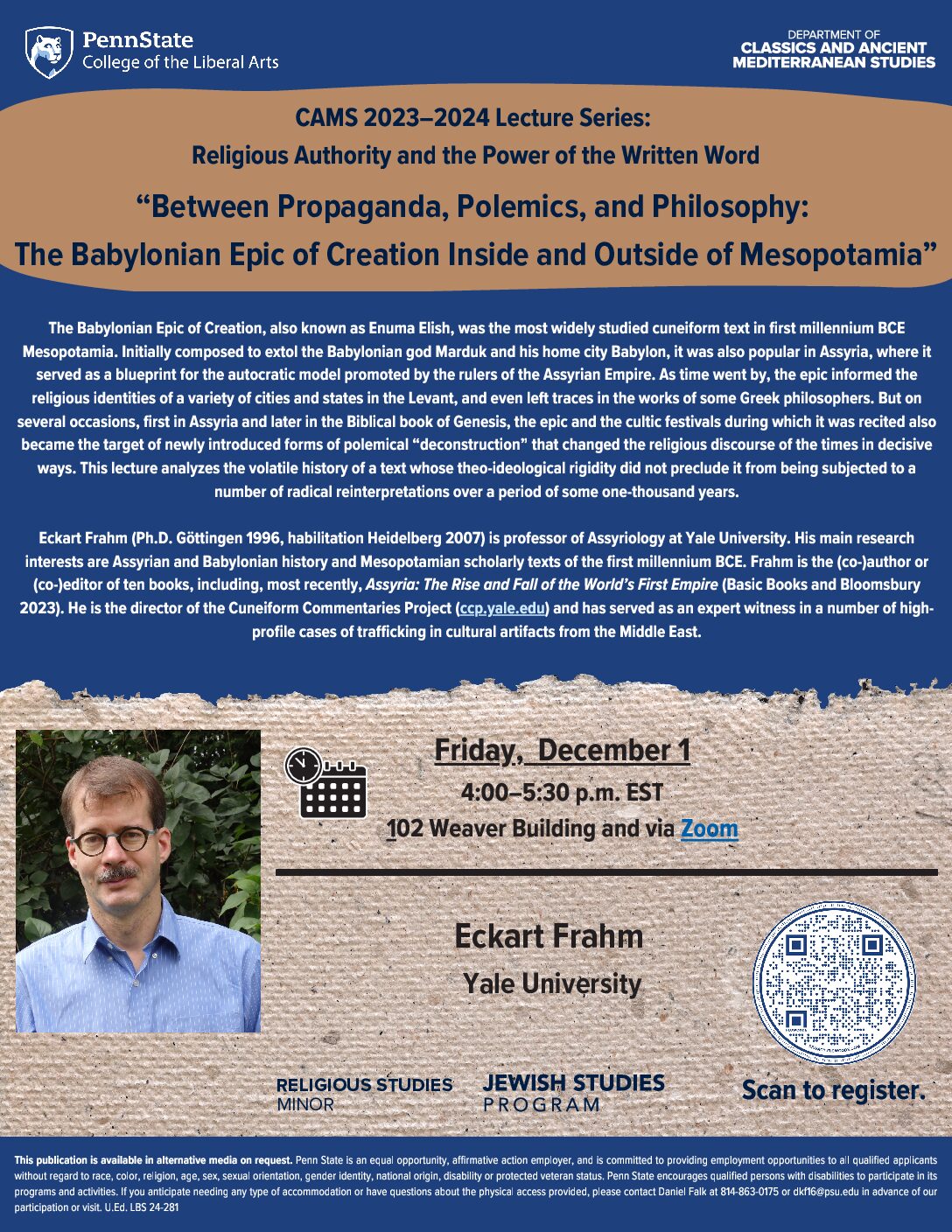Eckart Frahm (Yale) to speak on “Between Propaganda, Polemics, and Philosophy: The Babylonian Epic of Creation Inside and Outside of Mesopotamia”
The Babylonian Epic of Creation, also known as Enuma Elish, was the most widely studied cuneiform text in first millennium BCE Mesopotamia. Initially composed to extol the Babylonian god Marduk and his home city Babylon, it was also popular in Assyria, where it served as a blueprint for the autocratic model promoted by the rulers of the Assyrian Empire. As time went by, the epic informed the religious identities of a variety of cities and states in the Levant, and even left traces in the works of some Greek philosophers. But on several occasions, first in Assyria and later in the Biblical book of Genesis, the epic and the cultic festivals during
which it was recited also became the target of newly introduced forms of polemical “deconstruction” that changed the religious discourse of the times in decisive ways. This lecture analyzes the volatile history of a text whose theo-ideological rigidity did not preclude it from being subjected to a number of radical reinterpretations over a period of some one-thousand years.
Eckart Frahm (Ph.D. Göttingen 1996, habilitation Heidelberg 2007) is professor of Assyriology at Yale University. His main research interests are Assyrian and Babylonian history and Mesopotamian scholarly texts of the first millennium BCE. Frahm is the (co-)author or (co-)editor of ten books, including, most recently, Assyria: The Rise and Fall of the World’s First Empire (Basic Books and Bloomsbury, 2023). He is the director of the Cuneiform Commentaries Project and has served as an expert witness in a number of high-profile cases of trafficking in cultural artefacts from the Middle East.
Co-sponsor: Jewish Studies Program and Religious Studies Minor
